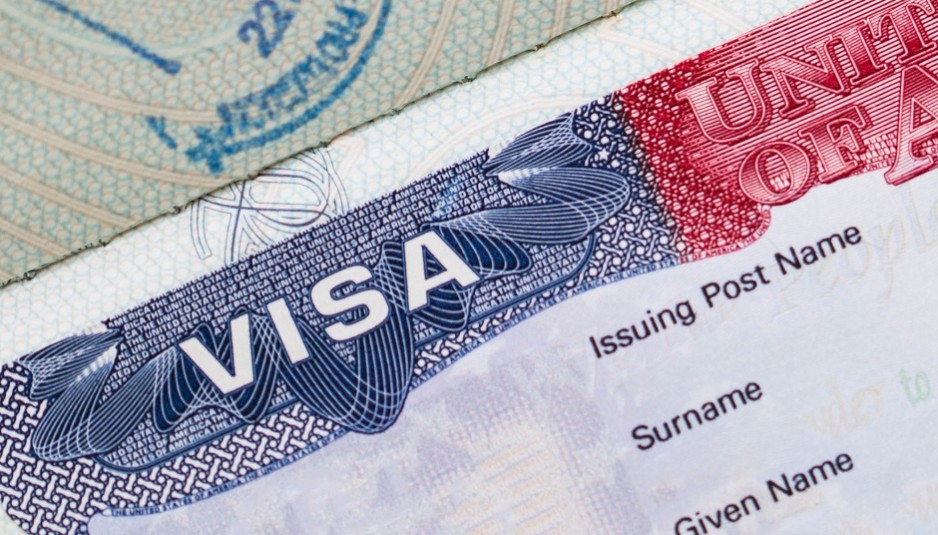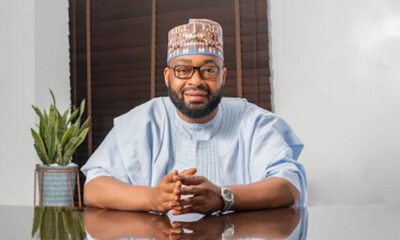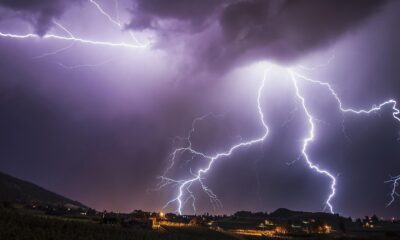International
UK university workers begin strike over ‘falling pay, brutal workloads’

Thousands of university and college staff in the United Kingdom, including lecturers, librarians and researchers, have declared a strike to demand pay increase and improved working conditions.
The University and College Union (UCU), the UK trade union for university staff, said the strike, referred to as the biggest in decades, is to improve quality in the education sector.
The UCU “represents over 120,000 academics, lecturers, trainers, instructors, researchers, managers, administrators, computer staff, librarians, technicians, professional staff and postgraduates in universities, colleges, prisons, adult education and training organisations across the UK”.
“This is the biggest week in our history. Every single university takes strike action on Thursday and Friday. We need every member, student and supporter on our picket lines on Thursday to show the employers that this time is different,” the union said in a statement.
Announcing the strike on Wednesday, Jo Grady, UCU’s general secretary, warned of a “bigger action” unless employers improved their offers.
“Staff are burnt out but they are fighting back and they will bring the whole sector to a standstill,” she said.
READ ALSO:
- Kidnappers in army uniform abduct Lagos passengers, probe begins
- LASTMA recovers pump-action rifle inside impounded vehicle
- Nicki Aycox, ‘Supernatural’ Actress, Dies at 47
“Vice-chancellors only have themselves to blame. Their woeful leadership has led to the biggest vote for strike action ever in our sector. Students are standing with staff because they know this can’t go on.”
The strike, which began on Thursday, will also hold on November 25 and November 30.
Commenting on the development on Thursday, Grady expressed satisfaction with the turnout of university staff.
“Today’s picket lines are huge. 70,000 university staff have turned out like never before, defying bullying tactics from management to show they will no longer accept falling pay, pension cuts, brutal workloads and gig-economy working conditions,” she was quoted as saying, according to UCL.
“If vice-chancellors doubted the determination of university staff to save our sector, then today has been a rude awakening for them.”
The strike has affected over 2.5 million students, some of who are standing in solidarity with their lecturers.
Lawyers, nurses, postal workers and many others have also protested to seek pay rises that match the soaring inflation in the country.
The latest protests come after the UK’s National Union of Rail, Maritime and Transport Workers announced on Tuesday that more than 40,000 rail workers will stage strikes in December and January, disrupting travel for scores of people during the festive season.
The union said members will have demonstrations for four days from December 13 and in the first week of January.
The UK has been battling difficult economic situations due to surging energy costs arising from the Russia-Ukraine war.
Earlier in August, the Bank of England warned that inflation would climb to just over 13 percent in 2022.
It also projected that the country would enter a recession from the fourth quarter of 2022 until late 2023.
In November, the country’s inflation rate jumped in the last 12 months to 11.1 percent in October — up by one percent from August’s inflation rate.
The Cable
International
US releases 41 countries granted 90-day entry without visas (full list)

US releases 41 countries granted 90-day entry without visas (full list)
Citizens from 43 countries can now visit the United States for up to 90 days without a visa, thanks to the Visa Waiver Program (VWP).
However, travellers must meet specific requirements and obtain approval through the Electronic System for Travel Authorization (ESTA) before boarding their flight.
ESTA is an online system managed by US Customs and Border Protection that determines eligibility for visa-free travel under the VWP. It’s important to note that the stay must not exceed 90 days, and travelers must apply for ESTA in advance.
The VWP covers travel for tourism or business purposes. Participating countries include the United Kingdom, Australia, France, Germany, Japan, South Korea, and Singapore, among others. Countries like Nigeria and India are not part of the program.
Even if you’re a citizen of a VWP country, you will not qualify for ESTA if:
You have visited or were present in North Korea, Iran, Iraq, Libya, Somalia, Sudan, Syria, or Yemen on or after March 1, 2011.
READ ALSO:
- 2025 UTME: Muslim students kick as JAMB officials seize candidates’ hijab at Caleb Varsity UTME centre
- Pep Guardiola, wife to ‘give marriage a second chance’ after Barcelona reconciliation meeting
- Groom cancels wedding, marries another lady same date, venue
1. You have visited or were present in Cuba on or after January 12, 2021.
2. You hold dual nationality with Cuba, North Korea, Iran, Iraq, Sudan, or Syria.
3. If any of the above applies to you, you must apply for a standard B-1/B-2 visitor visa instead of using the VWP.
1. Andorra
2. Australia
3. Austria
4. Belgium
5. Brunei
6. Chile
7. Croatia
8. Czech Republic
9. Denmark
10. Estonia
11. Finland
12. France
13. Germany
14. Greece
15. Hungary
16. Iceland
17. Ireland
18. Israel
19. Italy
20. Japan
21. Latvia
22. Liechtenstein
23. Lithuania
24. Luxembourg
25. Malta
26. Monaco
27. Netherlands
28. New Zealand
29. Norway
30. Poland
31. Portugal
32. Qatar
33. Republic of Korea (South Korea)
34. Romania
35. San Marino
36. Singapore
37. Slovakia
38. Slovenia
39. Spain
40. Sweden
41. Switzerland
42. Taiwan
43. United Kingdom
US releases 41 countries granted 90-day entry without visas (full list)
International
Thousands pay tributes as Pope Francis’ body lies in state at St. Peter’s Basilica

Thousands pay tributes as Pope Francis’ body lies in state at St. Peter’s Basilica
Vatican City was filled with the sounds of bells and heartfelt chants on Wednesday morning, as thousands of mourners gathered to honor the late Pope Francis.
In a moving and solemn procession, his simple wooden coffin was carried through St. Peter’s Square, marking the beginning of final rites for the beloved pontiff.
The procession began at the Domus Sancta Marta, the residence where Pope Francis passed away, and continued toward St. Peter’s Basilica. There, his body will lie in state until his funeral, scheduled for Saturday.
Two long lines of cardinals and Vatican officials escorted the coffin, while faithful from around the world looked on in prayer and reverence.
Dressed in a red chasuble and a white miter, with a rosary gently wrapped around his fingers, Pope Francis was honored with continuous applause as Swiss Guards solemnly accompanied the casket through the square.
Teresa Piuvano, a New Jersey resident who has been in Rome since March volunteering at Vatican events for the Jubilee year, saw Francis’ appearances on Palm Sunday and Easter Sunday. Easter, she said, “was the most special. I think he wanted to do that to say goodbye to the people because he rode around the whole square even though he was very ill.”
Inside the basilica, the pope was laid on a simple podium instead of the wooden structure, called a catafalque that has traditionally held a pope’s coffin as he lies in state. The ceremony that concluded the procession, led by Cardinal Kevin Farrell, who as camerlengo is charged with overseeing the logistics of the pope’s funeral, referred to Francis in humble terms such as “bishop” and “pastor.”
READ ALSO:
- Rivers: Tinubu set to emergency rule after meeting Fubara
- NNPCL: Protesters storm AGF office, demand probe of Mele Kyari
- Fresh herders’ attack claims 11 lives in Benue
“Dearest brothers and sisters, with great emotion we accompany the mortal remains of our Pope Francis into the Vatican basilica where he often exercised his ministry as the bishop of the church that is in Rome and as pastor of the universal church,” Farrell said in the prayer service.
After the death of Pope Emeritus Benedict XVI, Francis changed the protocol for papal funerals to streamline and simplify the procedures. The pope wanted his own funeral to reflect the life of a pastor and not of a powerful king or politician, he said in interviews.
After the ceremony, cardinals proceeded to bow one by one in front of the coffin before the mourners lined up in the square were admitted.
Nearly 20,000 people visited the basilica yesterday, according to the Vatican, which added that it would ensure that all who wish to pay their final respects to the pope have a chance by staying open after midnight if necessary.
Second General Congregation of Cardinals held in the Vatican
The second General Congregation of Cardinals began yesterday afternoon in the Synod Hall at about 5:00 PM, and ended at 6:30 PM.
According to the Holy See Press Office, 103 cardinals were present. They began the meeting with the ‘Veni, Sancte Spiritus’ prayer, and then with a prayer in suffrage of Pope Francis.
The Cardinals who were not present at Tuesday’s General Congregation were sworn in.
The programme of the Novemdiales, the ancient nine-day period of mourning for the Pope, was approved.
The next General Congregation will be today at 9:00 AM.
At the first General Congregation, held on Tuesday morning, the Cardinals decided to suspend all scheduled beatifications until the new Pope can approve them.
Moreover, in accordance with the norms of Universi Dominici Gregis, a commission of three Cardinals was selected by lot to assist the Camerlengo in the governance of the Church during the sede vacante.
These three Cardinals represent the three orders of the College of Cardinals and are replaced every three days. The first group of three Cardinals chosen was Pietro Parolin (episcopal order), Stanisław Ryłko (presbyteral order), and Fabio Baggio (diaconal order).
The Holy See Press Office noted that around 20,000 people had paid their respects to the late Pope Francis as of 7:30 PM on Wednesday evening.
Why King Charles isn’t allowed at pope’s funeral
Prince William will be traveling to the Vatican to attend the funeral of Pope Francis on behalf of the British royal family later this week. And if you’re wondering why King Charles isn’t going, he literally isn’t allowed.
Royal expert Katie Nicholl writes in Vanity Fair that King Charles “will not travel to the Vatican, in accordance with protocol and precedence which dictates that the Sovereign does not attend funerals, Buckingham Palace has confirmed.” And FYI, this isn’t the first time an heir has attended the funeral of a pope on behalf of the sovereign—back in 2005, then-Prince Charles attended Pope John Paul II’s funeral instead of Queen Elizabeth.
That said, King Charles did visit the pope just a few days before his recent passing, and he released a statement after his death.
Thousands pay tributes as Pope Francis’ body lies in state at St. Peter’s Basilica
International
UK records over 22,000 asylum-seeking Nigerians

UK records over 22,000 asylum-seeking Nigerians
The United Kingdom Home Office received 22,619 asylum petitions from Nigerian nationals between 2010 and 2024.
Nigerians accounted for one in every 30 UK asylum claims over the time, ranking 11th in the Home Office’s recently released year-end asylum and resettlement figures.
According to the Home Office, over two times as many Nigerians (2,841) requested asylum in 2024 than in 2023 (1,462).
Overall, 108,138 people applied for asylum in the UK in 2024, representing a 378 per cent increase from 2010. The majority were first-time claims by South Asian and Middle Eastern nationals.
Iran topped the chart with 75,737, perhaps pushed by the rising persecution of dissidents by the Iranian regime.
Pakistan trailed far behind with 57,621. In 2024, 10,542 Pakistanis sought asylum in the UK, prompted by post-election upheaval, rising inflation, and an increase in blasphemy cases, which human rights groups argue provide strong grounds for protection claims.
Afghanistan has received 54,363 asylum petitions since 2010. In 2024, 8,508 Afghans sought sanctuary in the United Kingdom, a development that experts suggest is a continuation of the Taliban’s ouster of the Karzai administration in 2022.
That year, 11,358 Afghans applied for asylum in the United Kingdom, with 9,710 applications the following year.
Others include Albania (50,944), Iraq (45,711), Eritrea (37,687), Syria (34,997), and Bangladesh (31,744). Asylum seekers from Bangladesh increased from 5,097 in 2023 to 7,225 in 2024. The rise corresponded with the removal of previous Prime Minister Sheikh Hasina.
READ ALSO:
- Driver crushes one-year old boy to death in Ekiti
- Bring your children to compete with mine, MC Oluomo challenges those mocking his spoken English
- Insecurity: Presidency questions push for state police, accuses govs of not doing much
Sudan and India complete the top ten, with 30,897 and 30,179, respectively.
Nigeria’s 22,619 filings are just ahead of Sri Lanka’s 22,059 and surpass Vietnam, China, and Turkey. Brazil, Kuwait, Yemen, Colombia, and Jordan were at the bottom of the list, with each providing fewer than 6,500 claims.
Analysts attribute Nigeria’s rise on the list to tough conditions such as insecurity, bandit assaults, abduction, and a collapse in household purchasing power following the naira’s devaluation in 2023.
In a conversation with our correspondent, Charles Onunaiju, Research Director, Centre for China Studies, Abuja, stated, “We face a difficulty. Nigeria is becoming unfriendly, particularly for young people with limited opportunities, and there is a desperate desire to travel overseas.
According to local reports, young professionals who previously entered the UK on skilled worker visas are increasingly hedging their bets by applying for asylum once there; others arrive irregularly via continental Europe, citing kidnapping threats and communal attacks in their affidavits.
According to the reports, in most cases, petitioners also claim political persecution under Nigeria’s wide cybercrime legislation or discrimination based on sexual orientation—both of which are protected under the Refugee Convention.
According to the Home Office’s website, an asylum seeker must demonstrate a “well-founded fear of persecution” because of their race, religion, nationality, political opinion, or membership in a certain social group.
The Home Office determines the initial decisions, and negative rulings can be challenged in the Immigration and Asylum Chamber.
In theory, the Illegal Migration Act of 2023 makes people who travel through a safe third nation inadmissible.
However, the UK government’s proposed removal process, particularly its contract with former Prime Minister Rishi Sunak to transfer claimants to Rwanda, is still enmeshed in legal obstacles.
As a result, the majority of 2024 and 2025 arrivals will continue to use the existing system.
Dr Aliyu Ilias, an Abuja-based development economist, told The PUNCH that as more Nigerians leave and stay permanently overseas, the country will have less trained labour.
He stated that with most Nigerians confronting both economic headwinds and deteriorating security at home, the British asylum route, however uncertain, still appears to offer a better prospect.
Ilias explained, “It’s definitely a cause of concern because this includes our professionals who are moving, and it takes a whole lot to train these professionals.
“In the medical sector, Nigeria subsidises a lot to get people trained. You cannot get trained as a medical doctor or an engineer abroad for a cheaper cost compared to what we get in Nigeria.
“So, it is total brain drain in the long run, and for the economy, it is reducing our GDP. The appalling part is that most of our Nigerian brothers and sisters who go out do not return. They get permanent residency, and they become valuable to the immediate country.”
UK records over 22,000 asylum-seeking Nigerians
-

 metro1 day ago
metro1 day agoOmokri : How Tinubu’s political mastery started with Abiola, says El-Rufai, Obi’s forces can’t stop him
-

 Education23 hours ago
Education23 hours agoJAMB officials seize candidates’ hijab at Caleb varsity, Muslim students kick
-

 Entertainment2 days ago
Entertainment2 days agoP-Square: Jude Okoye freed after two months detention
-

 International23 hours ago
International23 hours agoUS releases 41 countries granted 90-day entry without visas (full list)
-

 Politics2 days ago
Politics2 days agoLabour Party collapses into APC in Plateau
-

 metro1 day ago
metro1 day agoGroom cancels wedding, marries another lady same date, venue
-

 Entertainment3 days ago
Entertainment3 days agoTuface named technical adviser to Benue governor
-

 metro2 days ago
metro2 days agoNiger Gov Bago makes U-turn on dreadlocks ban after backlash













